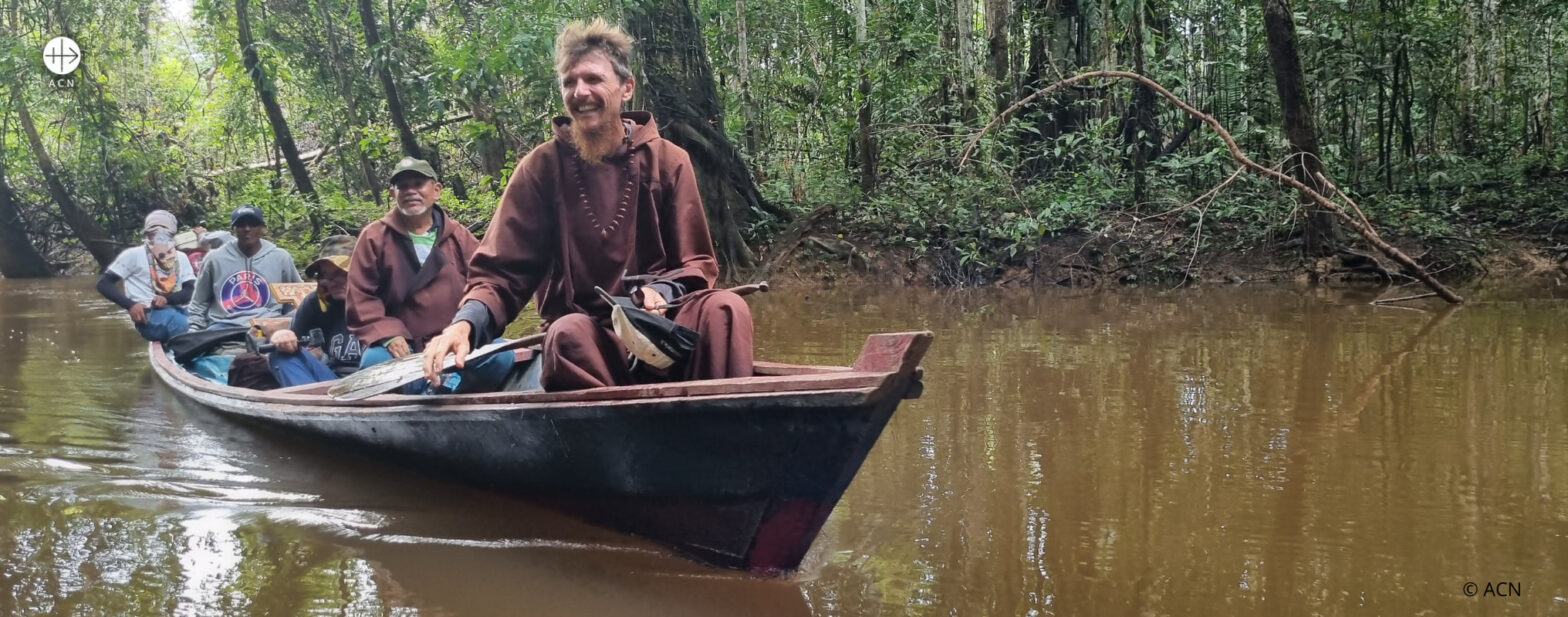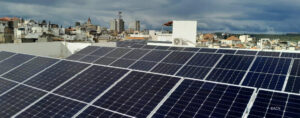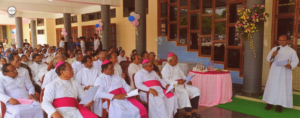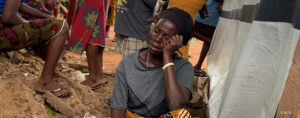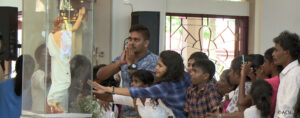In the Brazilian Amazon, a Capuchin friar shares the many efforts and trials necessary to spread the Gospel in this vast region and the help that makes it all possible.
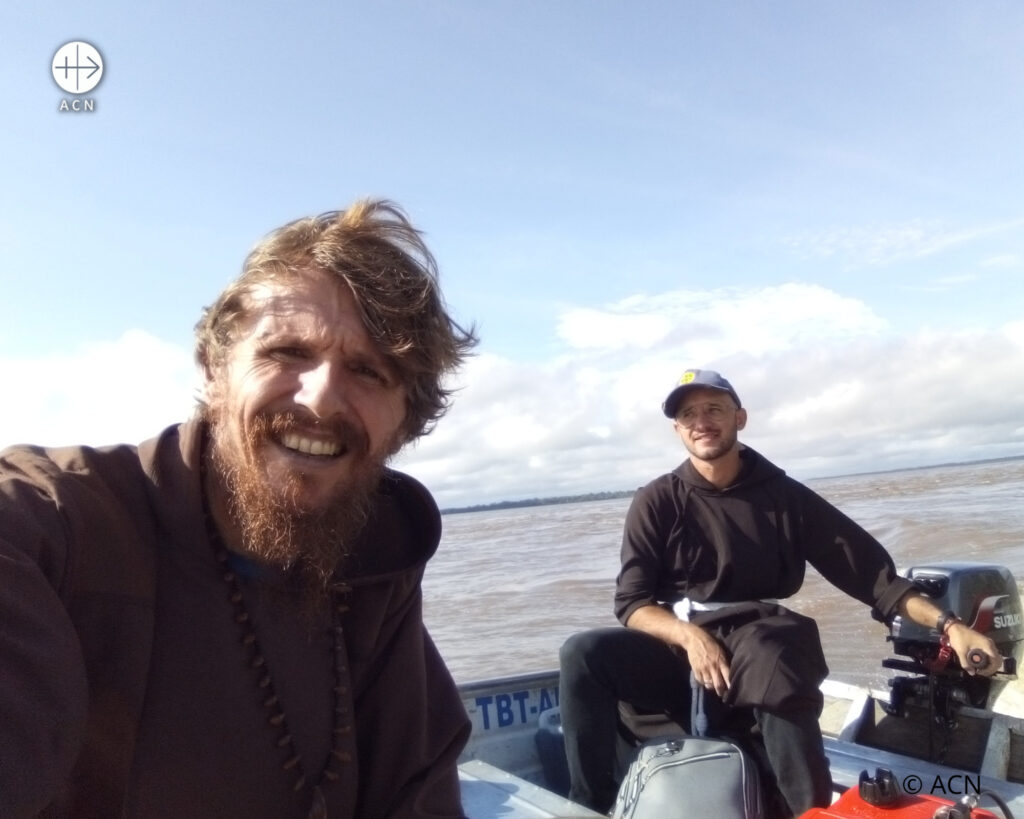
Friar Paolo Maria Braghini was returning to his mission one afternoon, after having gone to buy supplies in the city, when a cloud began to obscure the beautiful blue sky above the Amazon rainforest. A strong storm quickly followed. With limited visibility, a large passing vessel didn’t see Friar Braghini’s small boat, which was flipped over by the wake.
The friar and a member of the Indigenous Ticuna tribe, who was accompanying him, were pulled to the bottom of the river. With much effort, they managed to swim to the bank and drag themselves to safety, exhausted. But with dangerous ants, mosquitoes, and other insects lurking, staying still to rest was a luxury they could not afford. They walked in the darkness for over an hour until they finally found an Indigenous community that took them in. “It was by God’s grace that we survived. There are similar cases in which people drowned because the currents are so strong,” says the Capuchin.
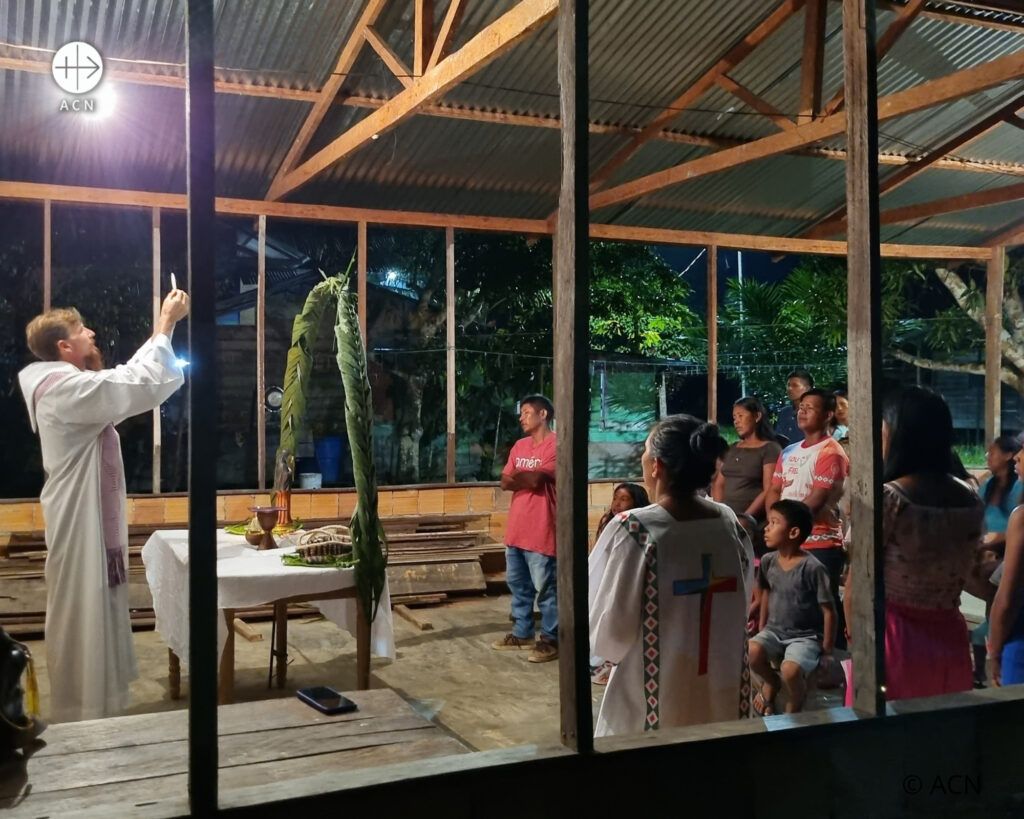
What for some would be an adventure of a lifetime was, however, just another day on the job for Friar Braghini. The Italian missionary arrived in the Amazon in 2005 and was sent to the Parish of Saint Francis of Assisi, in the village of Belém do Solimões, on the border between Brazil, Colombia and Peru. He currently serves 72 communities, spread out over a system of small rivers. Over the years, he has had close calls with alligators, had his body covered with fire ants, and had to carry a woman who had been bitten by a jararaca viper, not to mention the countless times his boat broke down and drifted along with the river current. “Accidents are part of life. Once, we saw what seemed to be a tree that had been swept into the river by a storm. When we got closer, it opened its eyes. It was an enormous alligator. My heart almost leapt out of my mouth,” the friar recalls.
First priest to visit and to celebrate baptisms
Friar Braghini explains that “when we arrived in Belém do Solimões, we found a parish that had been abandoned for 15 years. There was no priest, no religious services, and only a handful of laypeople kept the faith alive. In some communities, I was the first priest to perform baptisms. There was a lot of violence, a lot of alcoholism and high suicide rates among the young. We realised that they were crying for help, for opportunities. We started with small initiatives, like music courses, teaching them to play the guitar, to sew, and, little by little, we began new pastoral initiatives and evangelization increased.”
Great help to spread the Gospel
Friar Braghini’s mission would be that much more difficult without the help of Aid to the Church in Need (ACN), which has been supporting the Church’s mission in the Amazon since the 70s. Only recently, besides translating the Child’s Bible into the Ticuna language, the Capuchin mission was also able to acquire four motorized canoes. “Thanks to ACN, we can now visit more communities, because we work with Indigenous missionaries. Each community is about a day’s travel by boat. We provided each group of missionaries with one wooden canoe and a motor. Each group was then able to take on one or two more communities, which means that they can visit at least once a month,” the missionary explains.
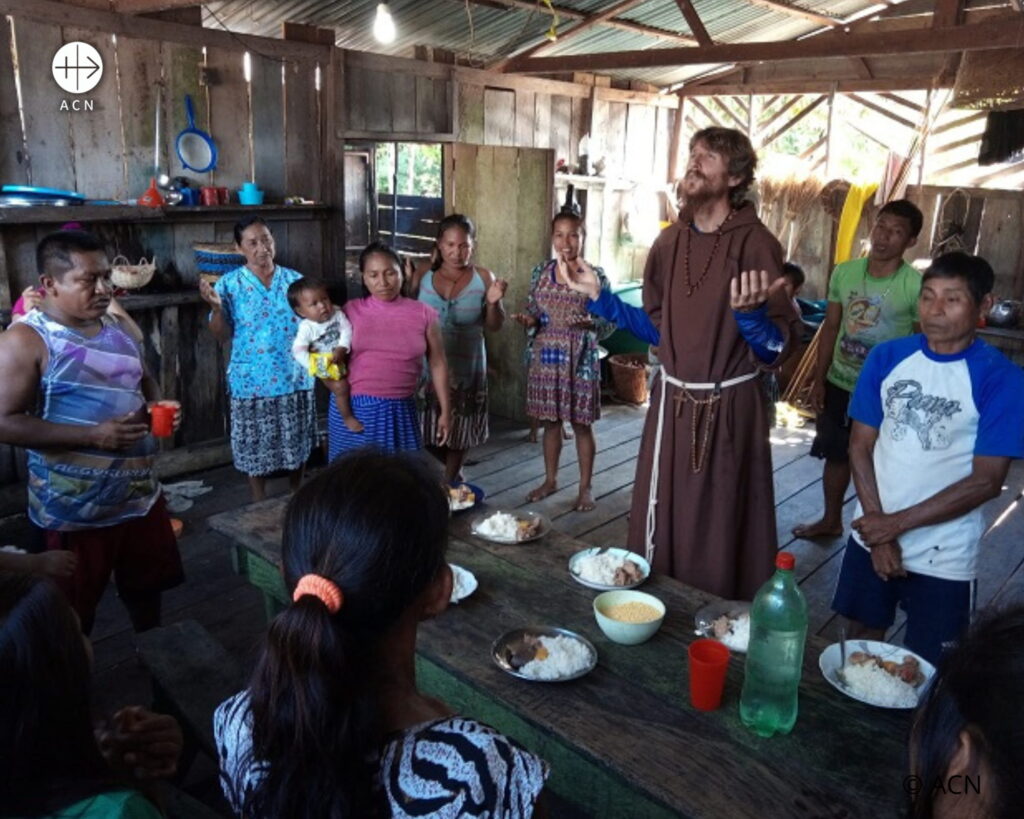
The largest ethnic group in the Brazilian Amazon
The Ticuna are the most numerous Indigenous tribe served by the Capuchins, with a population of 40,000. The seeds planted by the Gospel in the immensity of the Amazon are already beginning to bear fruit. The communities in Belém do Solimões have celebrations in their own language every Sunday, as well as catechesis. The region is also home to the first Ticuna deacon, and other Indigenous peoples are currently in seminary. “Our great strength has always been that we believed in them, that they can and should be the leaders and the pastors of their communities, in their own language and with their own beautiful culture. They feel and understand that we believe in them, that we love and value them,” Braghini states.
The friar has nothing but good things to say to ACN benefactors who continue to make it possible to provide Child’s Bibles, motorboats, fuel for pastoral visits, and even basic food parcels during the most critical time of the COVID-19 pandemic. “Thank you so much! I say this for every Indigenous who already benefits from your help, all the villages we visit with our missionaries, all the children – there are so many here, thousands! – all the women, fathers, and young people. Thank you from the bottom of our hearts, in their name and in ours as well. We are here trying to listen to God’s voice, which calls out through the people. We also ask you to pray. It is not easy to be a missionary in these lands. The challenges are many and great. Pray for us all, for the missionaries in the Amazon, and all over the world,” asks Friar Paolo Braghini.

